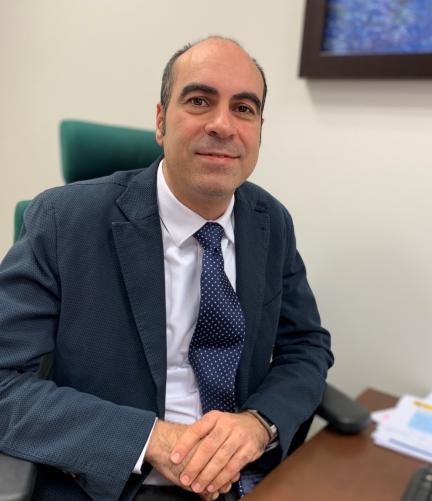


LEOS is a software tool helping those involved in drafting legislation, which is usually a complex process requiring efficient online collaboration. Comments, suggestions, version control, co-edition, everything is possible with LEOS. The software was released as open source and has developed a growing community around. One of the active community members and a user of LEOS is Carlos Fernandez from the Spanish Ministry of the Presidency, Relations with the Parliament and Democratic Memory.
Can you tell us a bit about yourself and the ministry?
My institution is, among other things, responsible for the quality of drafting legal texts generated by Spanish government and relations with the Parliament and the Senate. In our department, we manage all information systems used to fulfil these responsibilities, and LEOS will help us make the drafting of legal texts more efficient.
As a project manager of LEOS in Spain, I am responsible for the organisation of the necessary resources. I ensure that everybody involved in the project can contribute with their specific skills to define and develop the requirements for LEOS in our administration.
How did you find out about LEOS?
At the ministry, we needed a tool to support the activities of our office responsible for the quality of drafting legal texts. We searched for open source tools used in the European Union and LEOS arose as the best option.
Why did your organisation opt for LEOS?
After comparing with similar tools, we learned that LEOS had the following advantages:
In addition, we also benefit from the support of the LEOS team at the European Commission.
How was the implementation of LEOS in your organisation?
We are happy to say we managed to enable the use of LEOS in just nine months. Now it is possible to draft collaboratively legal documents in Akoma Ntoso, in a way that is fully compliant with our style guidelines and reduces the number of format mistakes.
In the first quarter, we set up the foundation and line of work:
We continued in the second quarter by preparing LEOS for our legislative tradition, which required the following:
In the third quarter, we did the final touches for our user groups:
Can you tell us about your collaboration with the LEOS team?
Currently, we share all our questions and feedback by e-mail. For topics like sharing of detected bugs or requests for new functionalities, we use the ticketing system provided by the LEOS team. We are using BitBucket too in order to exchange and contribute code. Additionally, we have organised several video conferences to share best practices and strengthen the confidence in the project.
What are your future plans with LEOS?
As the next step, we plan to involve other public institutions in Spain. We will organise pilots with end users in different ministries to attract more users but also to collect more feedback. We also plan to connect LEOS with our Official Journal (Boletín Oficial del Estado) to import documents.
Main users of LEOS will be the Spanish ministries, but other institutions have already contacted us to understand the possibilities of LEOS to ease their activities. Managing amendments of the Parliament and the Senate with LEOS and enhancing the information received by the Official Journal are currently in the main topics we discuss.
Is there any advice you would like to share with the LEOS community? Would you recommend LEOS to other public administrations?
Working with LEOS can be challenging at the beginning but once the architecture is correctly understood, it is real pleasure working with it. I would recommend other administrations and institutions to find the match between LEOS and their needs and plan the required adaptions in LEOS.
Interested in LEOS?
Visit the LEOS solution on Joinup!
Download the latest release of LEOS and get started.
Interested in the Spanish implementation of LEOS?
Find out more here.